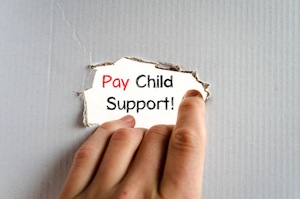Wheaton |
St. Charles |
Sycamore
 630-665-7300
630-665-7300
Recent Blog Posts
Who Pays the Attorney Fees in My Divorce?
 Generally, Illinois law does not require that attorneys' fees be paid by one spouse or the other. However, there are situations in which a court may step in and award attorney fees to a spouse, especially if the financial situation in the marriage is significantly lopsided. In these situations, the burden is on the spouse needing help to show that he or she has no ability to pay an attorney.
Generally, Illinois law does not require that attorneys' fees be paid by one spouse or the other. However, there are situations in which a court may step in and award attorney fees to a spouse, especially if the financial situation in the marriage is significantly lopsided. In these situations, the burden is on the spouse needing help to show that he or she has no ability to pay an attorney.
The most well-known Illinois decision on this topic is In re Marriage of Earlywine, which was decided in 2013. Neither Earlywine had funds to hire a divorce attorney, but the husband's family loaned him enough to do so. The court held that since Mr. Earlywine now had a concrete advantage over his wife, he was obligated to contribute toward her attorney's fees so as to level the proverbial playing field. This was held despite the fact that a significant portion of the money had already been paid to Mr. Earlywine's attorney; the concept of a “level playing field” in divorce litigation was deemed more important in terms of public policy by the court.
Divorcing an Absent Spouse
 An issue occasionally encountered in divorce is that a spouse will simply walk out, disappear or otherwise not cooperate or participate in the divorce proceedings. Hence, this can lead to issues obtaining a divorce decree. If your spouse cannot be located or contacted, it can be a little more difficult to obtain your divorce. Consulting an experienced family law attorney is advised.
An issue occasionally encountered in divorce is that a spouse will simply walk out, disappear or otherwise not cooperate or participate in the divorce proceedings. Hence, this can lead to issues obtaining a divorce decree. If your spouse cannot be located or contacted, it can be a little more difficult to obtain your divorce. Consulting an experienced family law attorney is advised.
Divorce by Publication
Divorce by publication is the process during which you place your notice of divorce in the newspaper or other publications that serve the area where your spouse was last known to reside. Once the court grants permission, you may then place the notice in the relevant publication for a specific period of weeks.
Divorce by Default
If your notice has run for the prescribed length of time with no results, and you have exhausted other possibilities in attempting to locate your spouse you are able to ask the court for a divorce at that time, as your spouse is presumed to have defaulted on his or her right to contest the filing.
Illinois Child Support Basics
NOTE: A new Illinois law governing how child support is calculated went into effect in July 2017. Please visit our child support page for details
 With the recent significant changes to spousal support and parenting laws in Illinois, some may labor under a belief that the child support laws changed as well. In reality, the child support regulations have not changed in any major respect recently.
With the recent significant changes to spousal support and parenting laws in Illinois, some may labor under a belief that the child support laws changed as well. In reality, the child support regulations have not changed in any major respect recently.
How Much Do I Pay?
Not every divorce involves child support payments; in rare situations, a judge may decide that one parent requires no additional income in order to provide a life that is in the best interests of the child. However, in the significant majority of cases, a judge will order the non-custodial parent to contribute monetarily based on the formula adopted by the state of Illinois.
Post-Divorce Decree Modifications
 When two people divorce, they may arrive at an acceptable settlement to allocate their property and other interests, including parenting time with children and an amount of support. However, this does not close the book on all marriage-related matters forever. It is possible in Illinois to make certain modifications to your divorce decree after a Judgment is entered, though not all issues may be reopened.
When two people divorce, they may arrive at an acceptable settlement to allocate their property and other interests, including parenting time with children and an amount of support. However, this does not close the book on all marriage-related matters forever. It is possible in Illinois to make certain modifications to your divorce decree after a Judgment is entered, though not all issues may be reopened.
Spousal & Child Support
In Illinois, a modification to either spousal support or child support may be made if a “substantial change in circumstances” has taken place. Modifications usually occur when someone has either sustained a loss (for example, if the noncustodial parent is loses a job), or when someone has had their financial situation improve. However, it is important to remember that until a court rules on a motion for a modification, payments must continue as previously set. If a party ceased paying support, or began to pay less, it could result in a party filing a petition seeking contempt of court.
Re-adoption in Illinois
 If you have adopted a foreign-born child, you may wish to go through a process called re-adoption after returning to Illinois. Though not required by law, re-adoption offers several benefits to both adoptive parents and the adopted child. Further, the process is usually a simple and happy occasion.
If you have adopted a foreign-born child, you may wish to go through a process called re-adoption after returning to Illinois. Though not required by law, re-adoption offers several benefits to both adoptive parents and the adopted child. Further, the process is usually a simple and happy occasion.
Reasons for Re-adopting
Perhaps the biggest reason for re-adopting is that the process ensures that any rights of the biological parents to the child are terminated. This will help protect against any potential issues, however rare they may be, that could arise in the future. Another benefit is that during the re-adoption process, the child's name can be legally changed. Frequently, adoptive parents desire to select their own name for their adopted child.
By re-adopting, documentation of the birth can be obtained simply by contacting the Illinois Vital Records. This is important because it avoids potential difficulty in obtaining the foreign adoption decree. Re-adoption allows for the creation of a Record of Foreign Birth, which is a legal and binding document that the adoptive parents receive upon the completion of the adoption. In order to acquire a Record of Foreign Birth, the adoptive parents must submit a Certified Illinois Certificate of Adoption and some other form of evidence of the child's date and place of birth, such as a certified copy of the original birth certificate.
Establishing Legal Parentage
 Paternity can be established in a number of different ways under Illinois law. Establishing paternity is important because, once established, a court can allocate parental responsibilities (formerly known as custody), allocate parenting time, and order child support. The level of complexity in establishing paternity depends upon the particular circumstances of the individuals involved.
Paternity can be established in a number of different ways under Illinois law. Establishing paternity is important because, once established, a court can allocate parental responsibilities (formerly known as custody), allocate parenting time, and order child support. The level of complexity in establishing paternity depends upon the particular circumstances of the individuals involved.
Paternity Determinations
Under Illinois law, paternity is established through any of the following means:
- Marriage to or civil union with a child's biological mother at the time of birth or within 300 days prior to the child being born;
- Marriage to the biological mother after birth and the father is listed on the child's birth certificate;
- Court order of parentage or Department of Healthcare and Family Services (DHFS) administrative order of parentage; or
Dissolution of Marriage: Irreconcilable Differences
 At the beginning of the year, changes went into effect in Illinois related to the process for obtaining a divorce. The fault grounds for a divorce have been eliminated. Instead, divorces will be granted when irreconcilable differences exist in the marriage.
At the beginning of the year, changes went into effect in Illinois related to the process for obtaining a divorce. The fault grounds for a divorce have been eliminated. Instead, divorces will be granted when irreconcilable differences exist in the marriage.
Elimination of Fault
Previously, divorce in Illinois could be based on some sort of fault by one of the parties. This included acts such as adultery or physical and/or mental cruelty. As 2016 begins, Illinois will no longer deal with these fault grounds for divorce. Instead, under Illinois law, couples can get divorced when it is shown that they have irreconcilable differences causing an irretrievable breakdown of the marriage. This means that prior efforts at reconciliation have been unsuccessful and future attempts are not practicable.
Irreconcilable differences exist when there is an inability of the couple to agree on basic, fundamental issues and there is no possibility of them ever agreeing. Issues that may lead to a finding of irreconcilable differences include, but are not limited to:
Premarital Agreements
 Individuals who are planning on marrying may be interested in forming a premarital agreement. This type of agreement defines the rights and responsibilities of each party during a relationship, as well as what happen in the event the relationship ends. Premarital agreements are also referred to as prenuptial agreements.
Individuals who are planning on marrying may be interested in forming a premarital agreement. This type of agreement defines the rights and responsibilities of each party during a relationship, as well as what happen in the event the relationship ends. Premarital agreements are also referred to as prenuptial agreements.
Forming an Agreement
Pursuant to Illinois law, a premarital agreement is an agreement made between individuals who intend to marry each other. The agreement becomes effective once the marriage actually occurs. In order to be enforceable, the agreement must be in writing, signed by both parties, and entered into voluntarily.
While most agreements require consideration to be exchanged between the contracting parties, premarital agreements do not require consideration in order to be enforceable. Individuals can agree (or contract) to the following in their premarital agreement:
Adoption and Birth Certificates
 Adoption brings together a child in need of parents and individuals who are willing to meet that need. As a result, adoptions are very beneficial for both children and parents. However, due to the different nature of adoption, there are unique issues related to the child's birth certificate.
Adoption brings together a child in need of parents and individuals who are willing to meet that need. As a result, adoptions are very beneficial for both children and parents. However, due to the different nature of adoption, there are unique issues related to the child's birth certificate.
Requesting a Copy of a Birth Certificate
Under Illinois law, an adult adoptee (considered a person 21 years of age or older) can request a non-certified copy of his or her original birth certificate. Further, this law allows the biological parents of a child placed for adoption to specify whether they would like to be available in the event the child wishes to contact them. Biological parents can also make their identifying information available.
In order to request an original birth certificate, the individual must fill out a Request for a Non-Certified Copy of Original Birth Certificate. This form must be submitted with a copy of a valid government-issued photo ID and a check or money order for $15 to the Illinois Department of Public Health (Department).
Declaring a Marriage Invalid
 Under certain circumstances, an individual may wish to request that a court declare his or her marriage invalid. Invalidity of a marriage, which was formerly known as annulment, is a distinct process from divorce. In order to have a marriage declared invalid, the marriage must have occurred under specific circumstances as described by law.
Under certain circumstances, an individual may wish to request that a court declare his or her marriage invalid. Invalidity of a marriage, which was formerly known as annulment, is a distinct process from divorce. In order to have a marriage declared invalid, the marriage must have occurred under specific circumstances as described by law.
Invalid Marriages
Under Illinois law, a marriage may be found invalid if it was entered into under one of the following conditions:
- One party did not have the ability to consent at the time of the marriage, which can occur because of a mental incapacity, or through the use of alcohol, drugs, or other substances, or because the party entered the marriage against his or her will (for example, because of the use of force);
- One party does not have the ability to engage in sexual intercourse due to a physical condition and, therefore, cannot consummate the marriage;


 Read More
Read More





